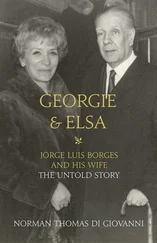Kemp looked at her with affection. Even when he first knew her, Elvira had been an old-fashioned girl for all that she’d been a child of the swinging ’sixties.
‘Of course I wouldn’t expect you to come back. The baby’s going to be the most important thing in your life from now on, and that’s the way it ought to be.’
Elvira picked up their glasses. ‘I’ll just get these washed,’ she said, ‘before your eleven-thirty appointment arrives.’ She was apt to get a little embarrassed when the relationship between herself and her boss verged on the personal. ‘And perhaps next month we might start putting an ad in the dailies … They have special days now for legal secretaries. Unless you want to promote someone in the office?’
Kemp shook his head. ‘It’s not fair to pinch other people’s secretaries. I’ll leave it to you, Elvira, to pick your successor. But, please—not a dolly-bird!’
‘I told you you were out of date, Mr Kemp. They’re all career women nowadays.’
Left to himself, Kemp contemplated the idea of a career woman, and was not cheered. He would miss Elvira. She was a link with the past although she was never the one to speak of it. Well, he would just have to get used to the fact of her going.
It was not the only shock he was to receive in that month of May to jog him into remembrance of things past. The letter he received a few days later from New York told him baldly of the death of his former wife, Muriel. She had been Mrs Leo Probert when she died, and the solicitors who had been acting for her went on to say that it had been inoperable cancer from which she had suffered for over two years.
For a moment Lennox Kemp could read no further. He was shaken by a sense of unspeakable sadness. As if she was there in the room, he could see her face with its halo of golden hair brushed up in the fashion of twenty years ago, hear her high, sweet, schoolgirl voice, her tinkling laugh … He got up, pushed back his chair roughly, and went over to the window. The solid blocks of Newtown misted before his eyes, and he saw instead the green canopy of the Forest which had lain at their door, and he was walking with her down a glade between the hornbeams on a summer’s evening in another world, another time.
She didn’t deserve to end like that, he thought fiercely, not Muriel. She had been so beautiful, so much in love with life, reaching out for its highest peaks and the fast-running excitements that buoyed her up in hopes that would not wait …
For all she had made him suffer, the ruin of his early career, his forced penance on the wrong side of the law, the long years’ endurance, he would never have wished her such ill-fortune as had now befallen her. She had been only a year younger than himself.
His hands were still shaking when he took up the letter again, and read on:
‘You may wonder why we have contacted you since there has been no communication, to our knowledge, between yourself and our late client for many years. Something has arisen, however, which we as executors of the deceased’s estate find it necessary to bring to your notice. It is, in our judgement, too delicate a matter to be dealt with by correspondence. One of our partners is travelling to London early next month and we are suggesting that he call upon you at the first opportunity to discuss the situation. By that time it is hoped that our Mr Van Gryson will be in possession of all the available information, and he will be able to speak with you in the fullest confidence of your own discretion. ’
Kemp read the paragraph once more. He recognized the form of words lawyers tend to use when they want to convey something of importance without actually saying anything at all. He noted that Mr Van Gryson was fairly high up in the list of counsellors attached to the firm; if he was coming all the way to London it either spoke volumes for the ‘delicacy’ of the matter or, more probably, fat fees for the executorship. Perhaps both. Muriel appeared to have died rich.
Kemp lifted the phone and cancelled all interruptions for the next thirty minutes. Emotions could wait—there would be time enough for those—now he had to think.
No mention of Mr Probert. Leo Probert had been a well-heeled gentleman of sporting instincts when Muriel had married him, but he had not been young. He was a middle-aged American on vacation in London when she met him. He offered escape, and a dazzling future when he whisked her off to Las Vegas where he owned casinos, giving her the entrée to that greater gambling world she had just begun to taste the sweets of, the sugar already on her teeth.
Kemp sighed. One could moralize on that, and denounce sugar as poison to the system, medically and on principle, letting Muriel’s addiction sink her without trace. But the facts were otherwise; she had flourished according to report, someone meeting the Proberts in later years having told Kemp she was still a lovely woman and living in style.
The letter ended with the usual expressions of condolence, in this case mere platitudes since neither the writer nor the recipient were acquainted.
Kemp dictated a reply, as carefully worded as Eikenberg & Lazard’s communication had been to him, and saying no more than that he would look forward to receiving a call from their Mr Van Gryson whenever he was in London.
Speculation at this point as to the reason for such a visit would be unwise. Certainly at one time Muriel had owed her life to him, it might well be that across time and distance she had remembered him in her will. Then why couldn’t her executors simply tell him so without this cloud of secrecy?
Later he would think about Muriel, the light-hearted girl who’d shared that house on the edge of Epping Forest. Now he reflected that to most individuals death was the end of their life’s story; to lawyers it was often just the beginning.
CHAPTER 2
Flaming June had run nearly three weeks towards another hot summer when a hearty American voice on the telephone asked if that was Mr Kemp.
‘Yes, Lennox Kemp speaking.’
‘Dale Van Gryson here. I’ve just arrived from New York.’
‘Kind of you to call so soon, Mr Van Gryson. Your firm told me you would be coming over this month.’
‘Wa-al … Things took longer than we’d anticipated. I’d like to meet with you, Mr Kemp.’
‘And I with you. As it appears to be personal, and doesn’t involve my firm, I would not trouble you to come all the way out to Newtown. Where are you staying?’
‘I’m at the Hilton. It would suit me just fine, Lennox, if we met here. It’s a private matter, as you say, and better discussed in civilized surroundings, eh? Could you come in and have dinner with me tonight?’
‘That would suit me, Mr Van Gryson.’
‘Fine. Fine. And it’s Dale. High time you and I got together on this … I’ll have you paged in the downstairs bar around seven. I’ve gotten myself a pretty decent room in this place where we can talk business afterwards.’
And well he might, thought Kemp when the meeting arrangements had been completed; Eikenberg & Lazard would be paying—and presumably out of the estate of the late Mrs Muriel Probert.
Dale Van Gryson turned out to be as hearty as his voice. He was a large, loose-limbed man with the kind of shoulders that moved separately from the rest of his body as if he could as easily freewheel through a public house brawl as a crowded cocktail-party.
Kemp watched him lope across the carpet of the lounge, and knew him instantly, the wide, welcoming smile, the open palms; the type of outgoing American who would sell you anything from Christian Science to long-range missiles.
Kemp had risen from his seat anyway on hearing his name paged, and now found his hands grasped fervently in the manner of one white man finding another in a jungle. Indeed, Stanley and Livingstone were models of Victorian restraint by comparison, he reflected, as he allowed himself to be piloted to a secluded table.
Читать дальше












